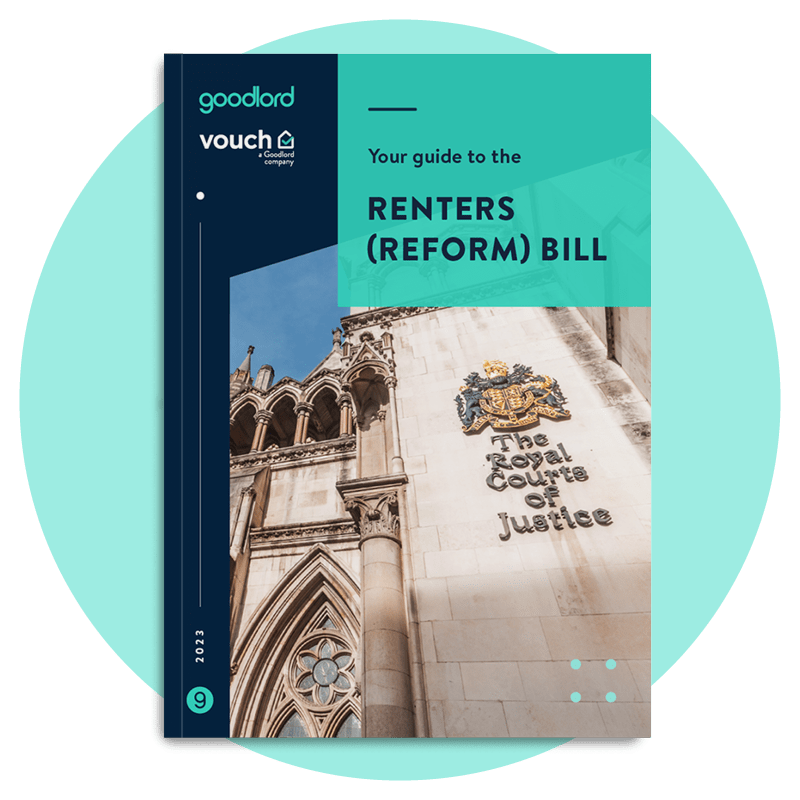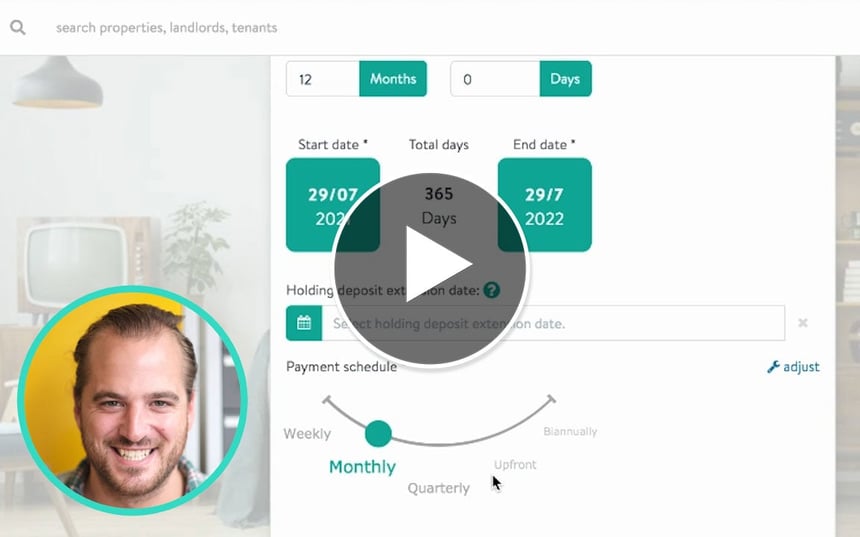Four ways you can reduce your agency's risk of being fined when letting a property
Letting a property comes with compliance risk - from sending draft tenancy agreements at the right time to protecting your tenants' deposits - but there are ways your agency can reduce that risk using technology.
The process of letting a property is fraught with compliance risk, from taking the holding deposit through to serving the prescribed information within the required time frame. Simply forgetting to attach a document can invalidate a Section 21 notice should you ever need to serve one, while overcharging a tenant for a holding deposit could result in a fine of up to £30,000. When lettings demand is high, the risk to your agency of making a mistake increases exponentially. Fortunately, technology can reduce the risk of manual error and ensure that your agency remains compliant with lettings legislation throughout the process and protect your business against costly fines.
Draft tenancy agreement
You need to provide prospective tenants with a copy of the tenancy agreement before you take a tenancy deposit, according to the guidance from the Competition & Markets Authority (CMA).
The reason you need to do this is to ensure that tenants have enough time to familiarise themselves with the agreement and decide if they’re happy with their obligations before signing it or paying any money in relation to it.
The CMA notes that letting agents should not place prospective tenants under any undue pressure to pay a deposit before they have been given the opportunity to review the tenancy agreement.
Lettings platforms like Goodlord's automatically provide tenants with a draft copy of the tenancy agreement - the receipt of which is recorded in an audit trail - and asks tenants to review and sign the final tenancy agreement before they pay the security deposit, so you don't forget this crucial step.
Deposit caps
Under the Tenant Fees Act, holding deposits in England are capped at no more than one week’s rent. A week’s rent is calculated as monthly rent x 12 ÷ 52 weeks.
In England, tenancy or security deposits are capped at no more than five weeks’ rent, where the annual rent of the property is below £50,000, and six weeks’ rent for properties with an annual rent of £50,000.
Anything above these caps is considered a prohibited payment and is subject to a fine of £5,000 on the first offence, but if a further breach is committed within 5 years of the imposition of a financial penalty or conviction for a previous breach this will be a criminal offence.
The penalty for the criminal offence, which is a banning order offence under the Housing and Planning Act 2016, is an unlimited fine. You can reduce the risk of taking more than the legally prescribed amount by using a deposit cap calculator and ensure that your deposits are always in line with the Tenant Fees Act, protecting your agency against financial penalties.
How to rent guide, EPCs, Gas Safety Certificates, and EICRs
You cannot serve a section 21 notice in England if you have failed to provide a tenant with a copy of the "How to rent" guide, Energy Performance Certificate (EPC), or gas safety certificate (if gas is installed) before they rented the property.
Failure to provide any one of these documents could invalidate a section 21 notice. Tenants must also be provided with a copy of the property's Electrical Installation Condition Report (EICR) under the Electrical Safety Standards in the Private Rented Sector (England) Regulations 2020.
Breaches of these regulations can result in fines of up to £30,000, but, when demand is high, it's easy to forget to attach a legally prescribed document at the right time.
That's where platforms like Goodlord's come in - they automate attachment of these documents alongside the tenancy agreement, ensuring that a simple lapse in memory doesn't have bigger implications down the line.
Plus, they let you know when any of a property's certificates is about to expire, so you can ensure you always have the right one on file.
Deposit protection and prescribed information
For assured shorthold tenancies, any deposit that you request from a tenant must be protected with one of the three Government backed tenancy deposit protection schemes within 30 days of taking the payment.
You must also provide the tenant with information about where and how their deposit is protected. The deposit is the tenant’s money and you will need to provide evidence to substantiate any claims against the deposit at the end of the tenancy.
If you do not protect the deposit, a tenant can seek up to three times the amount back from you by going through the courts. Furthermore, failure to protect a tenant's deposit and serve the prescribed information also invalidates a section 21 notice.
But, as with EPCs and Gas Safety Certificates, you can automate the sending of the prescribed information to ensure it's served within the correct timescales - or even register deposits directly through the platform.
Want the latest lettings new delivered straight to your inbox every week? Sign up to our mailing list and stay up to date.









